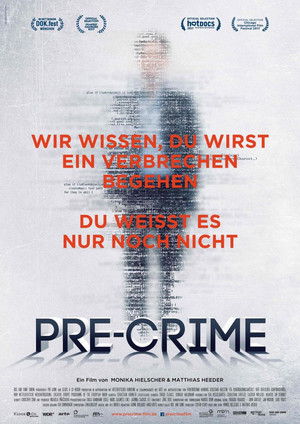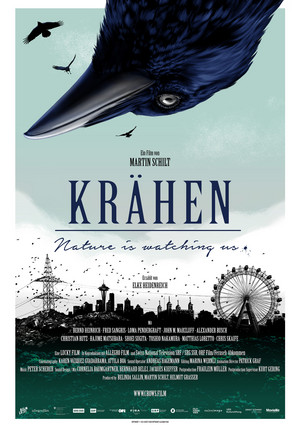
April 11, 2024, 7 PM:
"Pre-Crime"
Rechenzentrum am Burckhardtweg 4, 37077 Göttingen
Predicting and preventing crimes before they occur – what sounds like science fiction has long been a reality in many places. All around the world, police departments have implemented methods of predictive policing, using algorithms and machine learning to predict the place, time and perpetrator of crimes.
But how reliable are these methods really? How do they interact with existing prejudices and discrimination? And how much freedom do we want to give up in order to feel safe? Filmmakers Monika Hielscher and Matthias Heeder explore these questions in their documentary Pre-Crime (2017).
We invite you to a screening of Pre-Crime followed by a panel discussion. Data scientist Dr. Valentin Gold (University of Göttingen) and legal scholar Hauke Bock (University of Leipzig) will discuss the technological, ethical and legal implications of predictive policing. The discussion will be hosted by Prof. Ramin Yahyapour (GWDG).
The film and the panel discussion will be in German, but questions in English are welcome as well. Entrance is free.
March 5, 2024, 7 PM:
"Her"
Michael-Lankeit Lecture Hall, German Primate Center, Kellnerweg 4, 37077 Göttingen
In the near future, a lonely writer develops an unlikely relationship with an operating system designed to meet every need.
In 2013, this was Science Fiction. But is it still today?
AI-based operating systems and virtual assistants enable human-like linguistic communication and interaction in various areas of our lives. But what happens when virtuality and reality become increasingly intertwined and feelings develop between humans and machines? To explore this topic, we invite you to a screening of the film Her followed by a panel discussion. Data scientist Prof. Alexander Ecker, psychologist Dr. Vanessa Mitschke and philosopher Prof. Catrin Misselhorn will discuss the opportunities and risks of artificial intelligence and its ethical challenges. The discussion will be hosted by Prof. Thomas Kneib.
About the film:
In Spike Jonze’s award winning movie Her, Academy Award Winner Joaquin Phoenix stars as the introverted and lonely Theodore, who writes personal and empathetic letters for other people professionally. In the final stages of his divorce, he purchases the world’s first artificially intelligent operating system. Theodore quickly finds himself drawn in with Samantha, the voice behind his new virtual assistant (voiced by Scarlett Johansson). As they start spending time together, they grow closer and closer and eventually find themselves in love. Samantha helps Theodore in ways others hadn't, but how does she help him deal with his inner conflict of being in love with an operating system? The film received more than 30 awards, among them an Academy Award and a Golden Globe for the best screenplay.
The film is shown in English with German subtitles. Entrance is free.

February 8, 2024, 7.30 PM:
"Krähen: Die Natur beobachtet uns"
Lumière, Geismar Landstraße 19, 37083 Göttingen
They are deified, persecuted and chased away. Corvids are the only animals that have observed and studied us humans for thousands of years, but also have the ability to pass on this accumulated knowledge to their offspring. They are extremely clever and are said to have a very extensive memory. Corvids are also known as "feathered apes". But how clever are these birds really? And what are the differences and similarities between corvids and primates? And what do the crows know about us in return? "Is there a collective knowledge about humans in the flocks of crows?", is the central question of this documentary film by Martin Schilt.
The screening of the film is followed by a discussion with primate researcher Claudia Fichtel from the German Primate Center in Göttingen and corvid expert Claudia Wascher from Anglia Ruskin University (England). We invite to discuss the topics of the film and any questions they may have with our experts. The film is narrated in German, but most interviews with researchers in film are in English with German subtitles.
Tickets can be purchased via the website of the Lumière.

